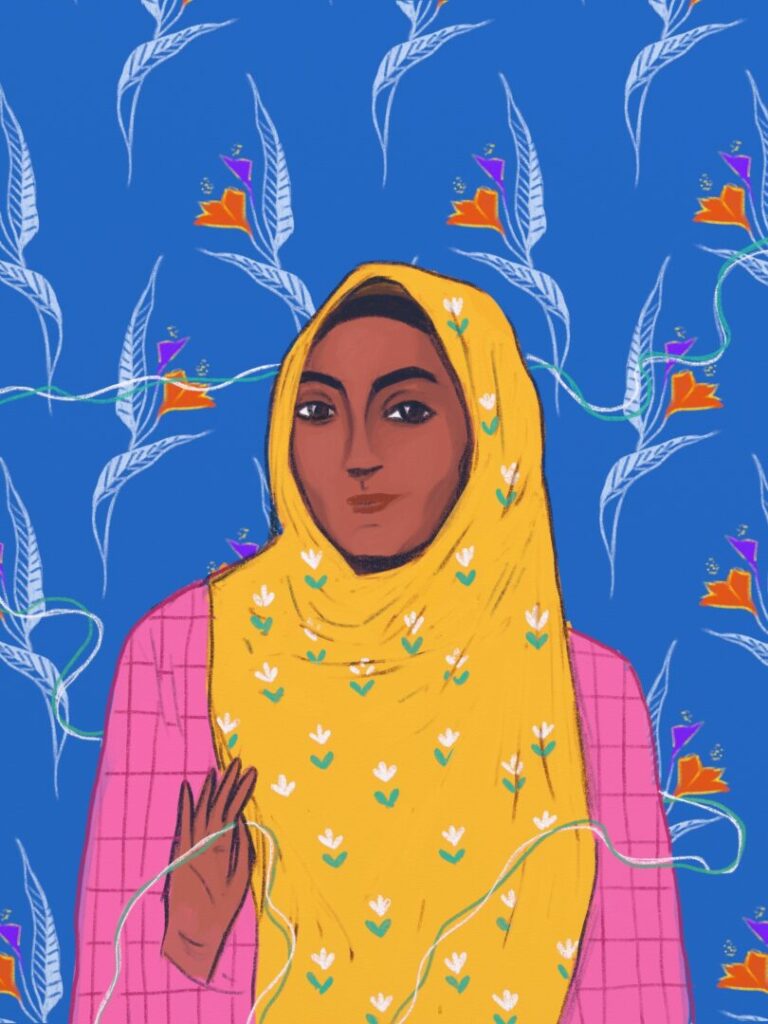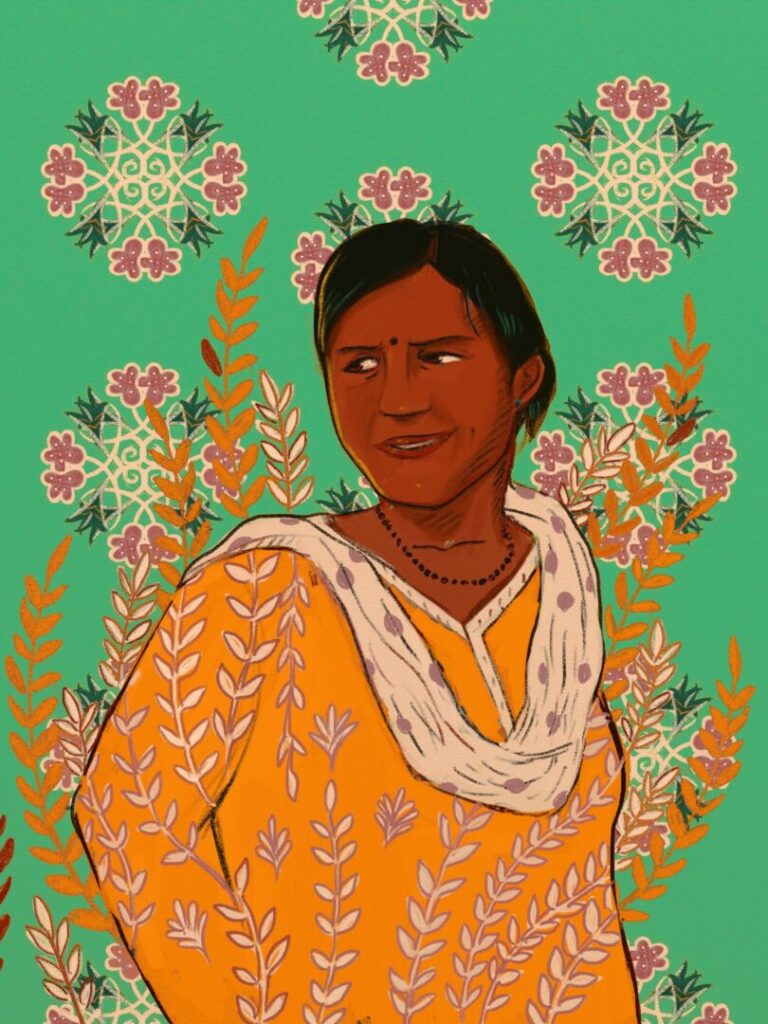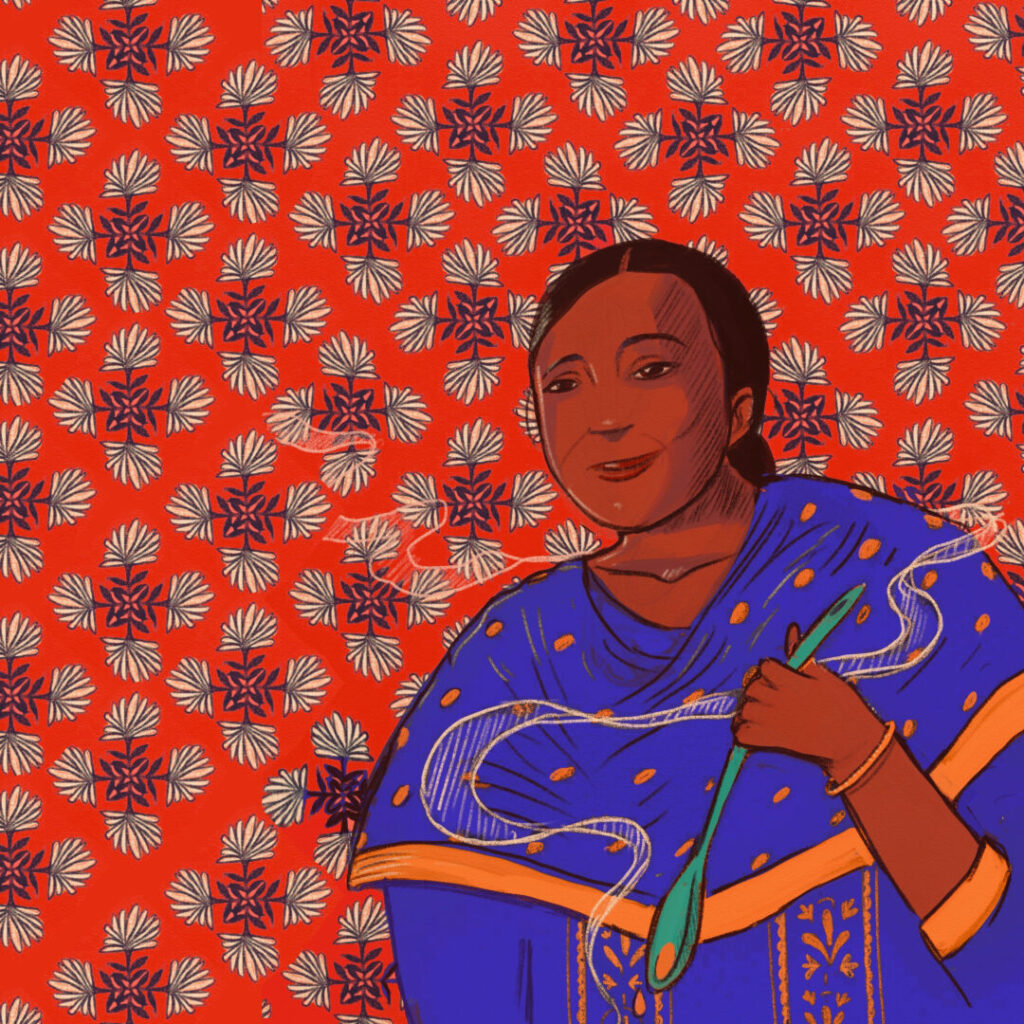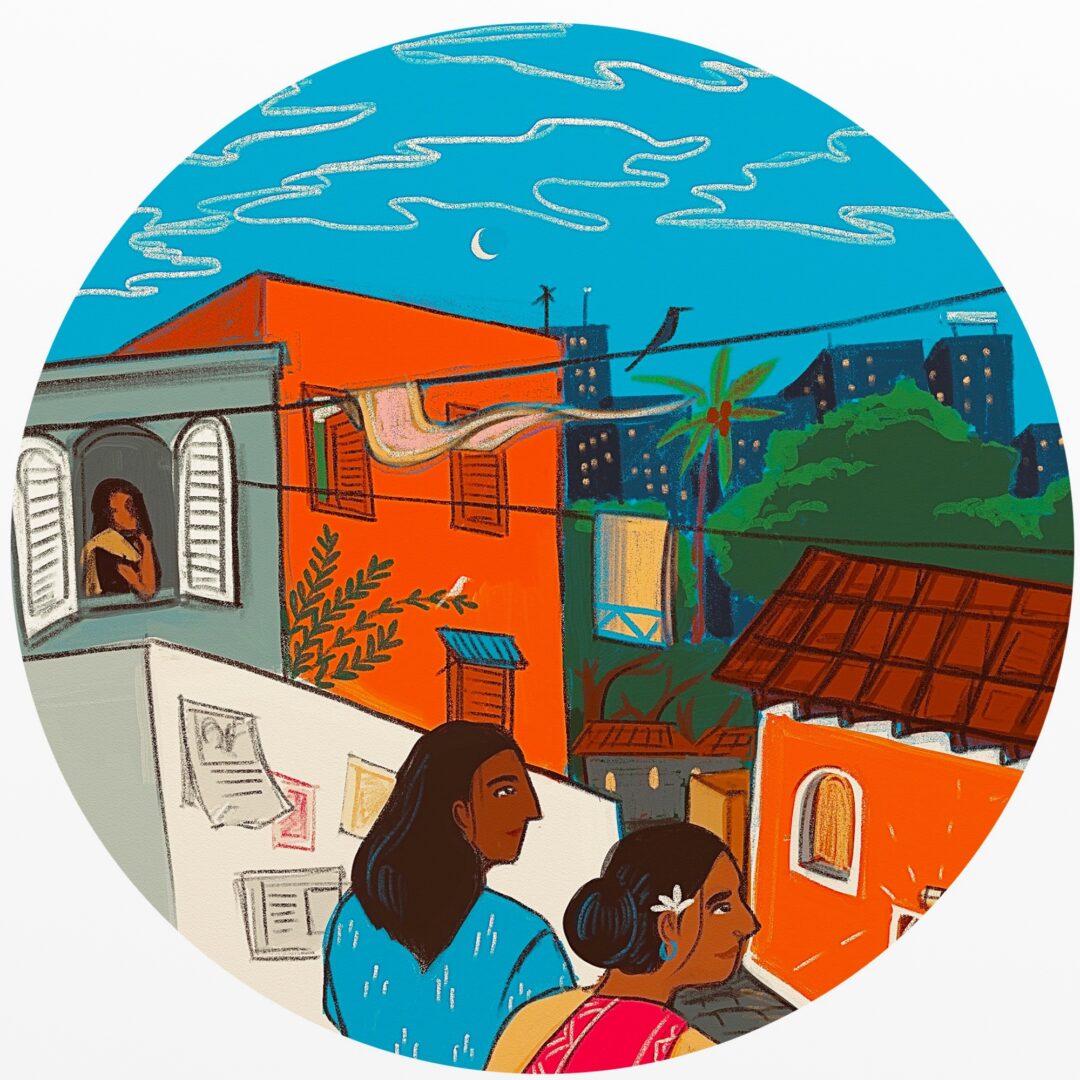We’re excited to share Gates Philanthropy Partners’ 2021 Impact Report, whose snapshots and stories were made possible thanks to you—our partners in this work.
In the report, we introduce you to the work of SEWA Bharat, a longtime grantee partner that empowers women working in the informal economy across India. Though data tells us that women were hardest hit by the COVID-19 pandemic, women innovators, advocates, and leaders demonstrated courage, resilience, and generosity to support their communities and lift other women up.
We hope you enjoy this glimpse of the report through the profiles of just a few of the amazing women in India who—when challenged by the pandemic—found their voice and power with and through each other.
Emerging from a Shuttered Economy with New Opportunities
In March 2020, when countries around the world were shuttering businesses and closing schools to mitigate the spread of the newly identified coronavirus, India implemented the world’s largest lockdown. The country restricted the movement of nearly 1.4 billion people. This sudden, swift action had a dramatic effect on the sizeable informal workforce, including street vendors, caregivers, and household staff, that previously animated city streets and households.
As with women around the world during the pandemic, women in India were the hardest hit by the shutdown. Of all women in the Indian workforce, 94 percent are employed in the informal economy—and of those, more than 50 percent are the sole supporters of their families. Jobs as nannies, housekeepers, and food vendors evaporated because of the lockdown and fears of infection. For women living on the threshold of poverty, fears of getting sick were matched by fears of financial loss and food scarcity.
When the second harsher wave of COVID-19 cases spiked in April 2021, lockdowns were inevitable, again impacting businesses and restricting movement among households. During this wave, the rapid spread of the virus coupled with financial devastation resulted in expansive losses—particularly for women living in poverty.
But out of loss and grief comes hope and innovation. While many women still face an uncertain economic future, many others have achieved new pathways out of poverty—often thanks to the collective action of other women in their community.
For women in India’s informal economy, they find strength, resolve, and inspiration in each other.
SEWA Bharat: Bringing Women in the Informal Economy Together
Women deserve formal workforce opportunities, financial independence, education, health, and legal rights. And that is what SEWA Bharat, a Delhi-based organization, has focused on for more than 40 years for women engaged in India’s informal economy. Through its expansive network of women’s cooperatives, SEWA Bharat reaches more than 1.9 million women in 17 of India’s 28 states.

Parveen Ben – Rajasthan state, Educator
More than half of India’s population does not have internet access. However, thanks to a digital literacy project hosted by SEWA, Parveen knew how to use the internet and educated herself about COVID-19. She had read that masks were important for preventing the spread of the virus. But instead of buying masks at a local market, she decided to make her own and learned how—like so many people around the world did!—by watching YouTube videos online. Her neighbors ultimately benefited from her curiosity and creativity. In the early days of the pandemic, when there were many unknowns, she visited them, sharing what she had learned about the virus and distributing among them the 200 masks she had stitched.
Lataben Gamit – Gujurat state, Organizer
Lataben is a farmer and the chairperson of a women’s co-operative called Megha Mandli, which provides 1,000 indigenous women farmers access to seeds and tools, as well as healthcare and insurance.
During the pandemic, Lataben and 75 women farmers from Megha Mandli pivoted to become organizers. Together, working through their cooperative, they reached out to 36,000 people in their district, offering information on COVID-19 and delivering 2,000 health kits, including masks and sanitizers, to those in small and remote villages, where those resources were unavailable. They also linked farmers suffering from economic losses to small loans and supplied them with okra seed kits so they could continue generating an income.


Sarabjit Kaur – Punjab state, Advocate
Sarabjit, a widow, lives with her son. To earn money, she works in private homes as a domestic worker and on farms. Before the pandemic, she supplemented her income by cooking for weddings. When the lockdowns started, even as she faced her own economic hardship, she identified people in her community who, as migrant families, were unable to access food and financial support. Sarabjit alerted local SEWA staff members as well as political leaders to the plight of these families. Thanks to her advocacy, they received food rations and access to other support services.
To explore the other stories from our 2021 Impact Report, check out the full report here.

